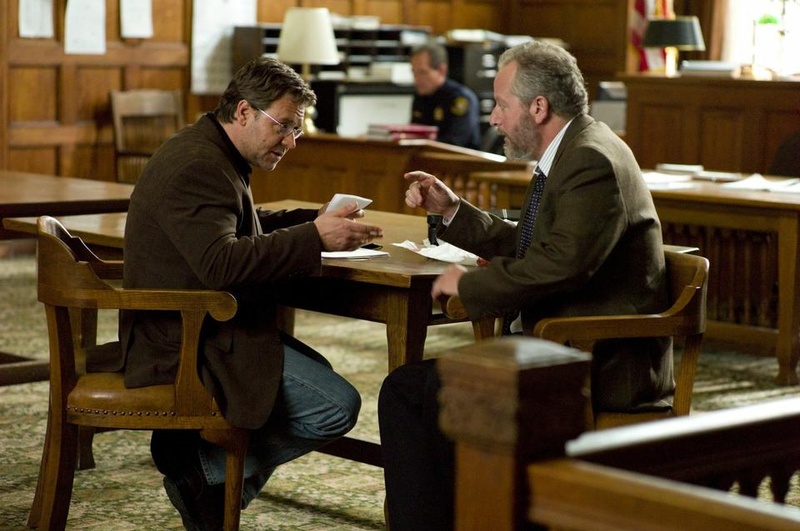The depiction of a brilliantly attempted liberation of alleged murderer Lara Brennan (Elizabeth Banks) by her husband John (Russell Crowe) cleverly distracts from what would be a creeping sense of sheer implausibility and a mounting number of favorable coincidences that conspire to bog down “The Next Three Days.” Perhaps most recognized as the award-winning director of “Crash,” Paul Haggis is able to tie together intricate details and desperate emotions in a surprisingly believable and fascinating manner in his latest film.
With all the evidence supporting the accusation that Lara killed her boss one night in a parking garage, her intensely loyal husband John appeals her life sentence to no avail. As her very young son grows distant, Lara’s spirit deteriorates in jail to the point of attempting suicide, but John assures her, “This will not be your life.” He soon decides to mastermind an elaborate scheme to rescue her from her misery.
After meeting with a successful prison escapee (as portrayed by Liam Neeson), John acquires the wherewithal for his rescue plan and becomes obsessively committed to it. Abandoning his job as a college professor as well as his family, he becomes engrossed in efforts to learn every intricacy of Lara’s prison. He trades all his items of worth to supply the expensive costs of the escape, works with underground criminals to acquire necessities—like fake identification—and to find any flaws in the system that he can take advantage of in his plan. When John is notified that Lara is about to be moved to another prison, his plan becomes direly urgent—he is forced to finally execute the prison break which he has obsessed over for months.
The ability of Russell Crowe and Elizabeth Banks to convey the desperation, frustration, and mutual devotion of their respective characters contributes significantly to making Haggis’s vision for this film a reality. Perhaps the most twisted and beautiful moment in the movie is when Lara—deeply distressed in the aftermath of her failed appeal—exclaims that John never once asked her if she actually killed the woman. In fact, she shockingly tells him that if he thought she was innocent, “then [he’d] be wrong.” Yet, Crowe portrays convictions so strong that it seems natural that this potentially revealing fact does not discourage John from seeking freedom for Lara and their family.
Watching John execute each step of his plan is indeed suspenseful, but it seems that more effort was put into showing his extensive planning rather than creating a believable escape plot. For instance, when the couple has escaped in a car and is faced with the possibility of needing to leave their son behind, Lara opens her passenger door and attempts to fall out of the speeding vehicle; the cinematography of this moment, however, is so poor that this dramatic action comes off as borderline cartoonish. The Pittsburg Police Department also seems unrealistically ineffective, serving as a convenient facilitator of many implausible plot points.
The driving force of “The Next Three Days” is the ambiguity of Lara’s innocence. Though she seems to admit to the crime at one point, the audience is unsure if this is just a lie she has come to believe as a result of her deep sorrow. To complicate matters, a counterplot in which another person kills Lara’s boss and happens to run into her, leaving the unmistakable bloodstain on her jacket, is also shown as part of the film. “The Next Three Days” draws its beauty from John’s pledge of his life to saving Lara despite this uncertainty. As John says to his class in a lecture about Don Quixote, “Rational thought destroys the soul.” Though too much rational thinking may expose the gaps in the logic of this film, its soul is firmly rooted in its believable, relatable, and thoroughly real emotions.
Read more in Arts
Top Five 'Bring It On' Films (Based Solely on Their Wikipedia Synopses)













